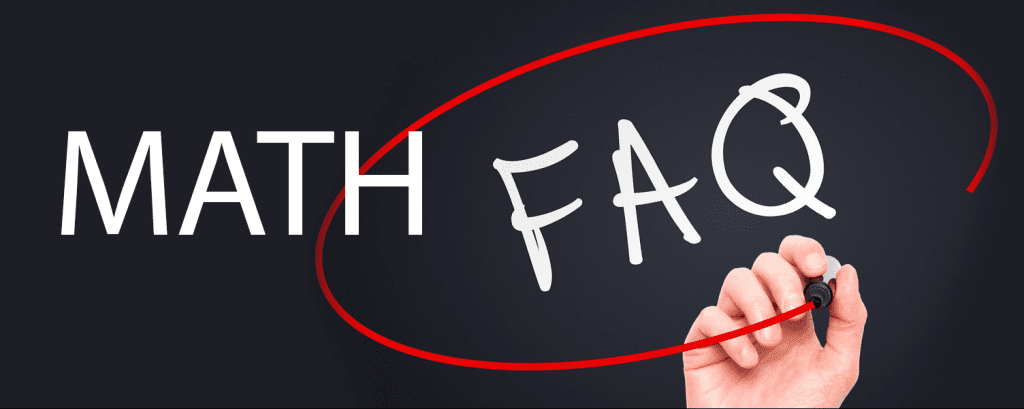Do You Need Maths to Do Economics Degree?
Yes, math is typically required for an economics degree, especially in areas like calculus, statistics, and algebra to model economic problems and analyze data.
Do You Need Maths to Study CA?
Yes, to become a Chartered Accountant (CA), a strong foundation in math is recommended, especially in areas like accounting, statistics, and financial calculations.
Do You Need Mental Math in Engineering?
Yes, mental math can be useful in engineering for quick estimations and problem-solving in day-to-day calculations, though most complex problems are solved using calculators and software.
Do You Require Math in University of Manitoba?
Yes, many programs at the University of Manitoba, especially in science, engineering, business, and computer science, require math. The specific requirement depends on the program you apply to.
Does Additional Math CIE Help?
Yes, taking Additional Math in CIE can be very helpful for students pursuing STEM fields, as it provides a strong foundation in advanced topics like calculus and algebra.
Does Ajman University Offer B.Sc. Maths?
Ajman University offers a variety of undergraduate programs, but it’s best to check their official website for the most up-to-date information on whether they offer a B.Sc. in Mathematics.
Does All Math Include Numbers?
Most branches of math involve numbers, but some areas, like abstract algebra and theoretical math, deal with symbols, structures, and relations rather than numbers alone.
Does Being Good at Math Make You Rich?
Being good at math can open up lucrative career paths in fields like finance, data science, engineering, and technology, but it doesn’t guarantee wealth by itself. Success depends on how you apply math skills.
Does Biotechnology Have Anything to Do with Math?
Yes, biotechnology involves math, particularly in areas like statistics, data analysis, and modeling biological systems. Math is crucial for experiments, genetic analysis, and bioinformatics.
Does Cengage Maths Provide Questions of JEE Advanced Level?
Yes, Cengage Maths books are known for providing JEE Advanced level questions, covering a range of topics with detailed explanations and practice problems tailored for the JEE exams.
Does Chartered Accountancy Require CBSE Senior Maths?
While senior-level math in CBSE is helpful for Chartered Accountancy, it is not mandatory. However, strong math skills in areas like accounting, financial calculations, and statistics are important.
Does Chartered Accountancy Require Maths?
Yes, math is required for Chartered Accountancy as it involves working with numbers, financial statements, and complex calculations related to tax, auditing, and budgeting.
Does Chemical Engineering Involve a Lot of Math?
Yes, chemical engineering involves a significant amount of math, especially in areas like calculus, differential equations, and linear algebra, which are used in process modeling and design.
Does Chess Help in Maths?
Yes, playing chess can help improve math skills by enhancing logical thinking, problem-solving, and strategic planning, which are key components of mathematical reasoning.
Does Civil Engineering Use Math?
Yes, civil engineering uses math extensively, especially in calculus, algebra, geometry, and trigonometry for designing structures, analyzing forces, and solving construction-related problems.
Does Columbia University Accept Math Studies?
No, Columbia University typically prefers students to take Math SL or HL over Math Studies, especially for STEM programs. Math Studies may not meet the math requirement for more competitive programs.
Does Computer Science Involve Hard Math?
Yes, computer science involves hard math in areas like discrete mathematics, algorithms, probability, and linear algebra. However, the level of difficulty varies by specialization.
Does Electrical Engineering Involve Math?
Yes, electrical engineering requires a solid understanding of math, including calculus, linear algebra, differential equations, and complex numbers, for circuit design and signal processing.
Does Holland Accept Math Studies?
Some universities in Holland may accept Math Studies for non-STEM programs, but competitive fields like engineering and science often require Math SL or HL.
Does Kip McGrath Do A-Level Maths?
Yes, Kip McGrath offers tutoring for A-Level Maths, helping students prepare for their exams with tailored lessons and support.
Does Math Make You Smarter (New York Times)?
According to research, math improves critical thinking and problem-solving abilities, which can contribute to overall cognitive development. The New York Times has published articles highlighting how studying math can help improve brain function.
Does Math Make You Smarter (Reddit)?
On Reddit, users discuss how math improves logical thinking and problem-solving skills, which may help with learning other subjects and enhance cognitive abilities.
Does Math Make You Smarter?
Yes, math can make you smarter by enhancing your analytical thinking, problem-solving, and logical reasoning skills, which are valuable in both academic and real-world situations.
Does Medical Billing and Coding Require Math?
Yes, medical billing and coding involves basic math, such as calculating payments, handling percentages, and understanding medical fee structures, but advanced math is not typically required.
Does Mode Mean in Math?
In math, mode refers to the number that appears most frequently in a data set. For example, in the set {2, 3, 3, 4, 5}, the mode is 3.
Does NYU Accept Math Studies as a Preparatory Math Class?
No, NYU prefers students to take Math SL or HL for more competitive programs, especially in STEM fields. Math Studies may not meet the math requirements for all programs.
Does Oxford University Accept IB Math Studies?
No, Oxford University typically does not accept IB Math Studies for entry into STEM programs or other competitive courses. Math SL or HL is preferred.
Does Pediatrics Involve Math?
Yes, pediatrics involves some math, particularly in calculating medication dosages, growth rates, and vital statistics for young patients.
Does St. Francis Xavier University Require Math?
Yes, some programs at St. Francis Xavier University require math, particularly in fields like science, engineering, and business. Requirements vary by program, so it’s best to check the specific course details.







